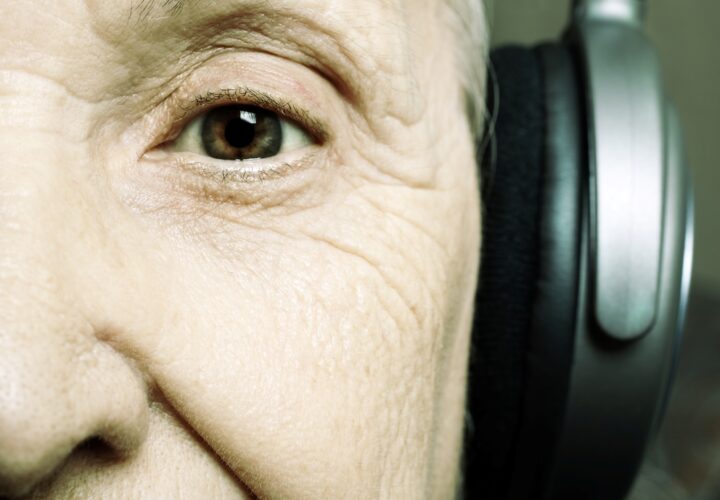Clinicians personally impacted by Alzheimer’s share their insights on ways to best support caregivers.
Reisa Sperling, MD, swore that she would find a cure for Alzheimer’s after she lost her grandfather to the disease when she was in medical school. Years later, when her own father developed the disease, Sperling, now the director of the Alzheimer’s Research and Treatment at Brigham and Women’s Hospital in Boston, found herself racing against the clock. Sperling and her colleague Dorene Rentz, PsyD, whose husband has Alzheimer’s, both know what it’s like to quickly lose a loved one to Alzheimer’s, even if they live for many years after diagnosis. We spoke to them about how to help caregivers, how the stigma of Alzheimer’s needs to change and how to take time for yourself when your world is consumed by Alzheimer’s.
- Caregivers are more likely to develop dementia than non-caregivers, and many of them are women
- Some towns in Europe have dementia villages, where dementia patients and their families live amongst other people facing the same challenges
- Social programs that give caregivers a break and allow patients to access a support group could be a big step in removing the stigma
Being Patient: Caregiving often falls to women. A lot of the financial burden associated with an Alzheimer’s diagnosis falls to women, too—women lose more money when a loved one is diagnosed with Alzheimer’s, and they make less money in the first place.
Reisa Sperling: They are also taken out of the workforce at exactly the wrong time. They just finished dealing with trying to raise their own kids, are back in the workforce—sandwich generation, it’s been called—and then they have to stop to take care of not only their parents, but their husband’s parents.
I think this really is an unfair burden on women, and it has been suggested that part of the reason women are more vulnerable to cognitive decline is because of this stress at this time in their life. Caregivers are more likely to develop dementia than non-caregivers, and many of them are women. These are really important things we’ve got to fix. We have to get women help from men, and other women so that they’re not disproportionately carrying that burden.
Being Patient: What does that look like? Is that more funding from the government or more resources from an Alzheimer’s Association type of program?
Reisa Sperling: I think there’s some big systemic things around unpaid caregiving that need to happen, whether it’s women or men. You talk about how much Alzheimer’s costs—it’s $217 billion per year in caregiving in the U.S.—but that does not include the loss of productivity in women in particular. I think we have to systemically look at this and say, “What do we need to do to support this?” What we need to do ultimately is prevent patients from getting to the stage where they need that level of care, and for me personally, the answer to that is prevention. But for the five or six million people already suffering from Alzheimer’s disease now, we need some emergency help for the unpaid caregivers.
That’s government, that’s philanthropy, that’s the Alzheimer’s Association. To some degree, it’s also the same thing we’ve done for childcare. We haven’t done it well in this country, but European countries are models of that. I think we need models like that for women and men, who take time off to care for a sick parent, and particularly a parent with dementia where it’s just so burdensome.
Dorene Rentz: I also think there has to be a social paradigm shift. People ask me, ‘Well, Doc, what can I do?’ One of the things I always say is to help a caregiver. Be there to provide respite. Take them to the store. We live in such an isolated society in the United States of America. Some ethnic groups are better at it, but most Americans don’t talk to you if they know that this is going to be your burden. I think that there just has to be a social paradigm shift where we take care of each other. We’re all in this together.
Even with families, because our kids don’t live next door any more. They live far away and they feel isolated. They moved or don’t want to get involved, and frequently it falls upon the spouse to be the only one who’s taking care of things. We need to be more tribal.
Reisa Sperling: Yes, I agree with that. Caregivers often don’t ask for help and social involvement because they’re embarrassed. The patient, at times, is embarrassed. I think we need to lessen the stigma of the disease and tell people that there’s no reason to be embarrassed—we all forget things. We should make it more socially acceptable to have some memory impairment, but still be out doing things. I also think we need day programs for late-stage Alzheimer’s disease. It’s helpful for caregivers to give them a break, but I feel like we need activities, and social groups, and things that really would bring earlier stage patients out doing things with each other so [they can give each other] social support. For whatever reason, that’s been very hard to get going.
Dorene Rentz: Here in Boston though, we have memory cafes. We’re a dementia friendly city. On a federal and state level, efforts have been made to offer services within the community, and one of them is these memory cafes. These are places for people to come anonymously where they can receive a little bit of education, but predominantly it’s for social interaction with each other.
Reisa Sperling: Oh, me too. There are a few other things that are really exciting, like they have choruses of people who love to sing. Even if you have a pretty substantial memory problem, you can sing a song that you know well. There are dance groups. I think we need bowling. If I suddenly had money to put toward social programs, I think this would be it—to help support caregivers.
Dorene Rentz: In Europe, in Amsterdam, for instance, there are whole villages of people who come together. They’re predominantly for people who have memory loss or dementia, but their spouses move in and everything. So it becomes a whole community of people living together. They all live in this four-block area where they can change the environment around so it’s protective for them. If we had a lot of money, we could help people. Unless we find a cure, which we’re hoping for, this is an epidemic. What are we going to do with people?
Being Patient: You both are fully immersed in the world of Alzheimer’s. Do you ever feel the need to escape that a little bit, or is that just your life?
Reisa Sperling: You know I was thinking about this a lot today, because I’m feeling really happy for the first time in about a year [since my father passed]. I think there was a very intense period, not just losing my dad to Alzheimer’s and watching him go through this last year, but also a lot of intense things happening with some of these trials I was working on. I feel like I’m suddenly feeling much better, and I think I didn’t take the time I should’ve taken off to do things.
I haven’t been good at pulling away from work, and I am realizing now that I don’t think I’ve been as good a researcher, and I definitely haven’t been as good a doctor, because I don’t think I got away enough and I don’t think I rejuvenated enough to be as dedicated as I need to be. I feel this immense urgency, that every week I don’t work on this I’m not doing something to help, but I think I’ve realized that I’m not going to be effective unless I really get some time away. Hopefully I’m learning that.
This interview was edited for length and clarity.




My daughter recommended that we go to Boston to have my husband evaluated. But we don’t feel comfortable or capable of making a two hour trip as we are both in our 70s. Could you recommend a neurologist in or around Hartford, CT that we can go to?